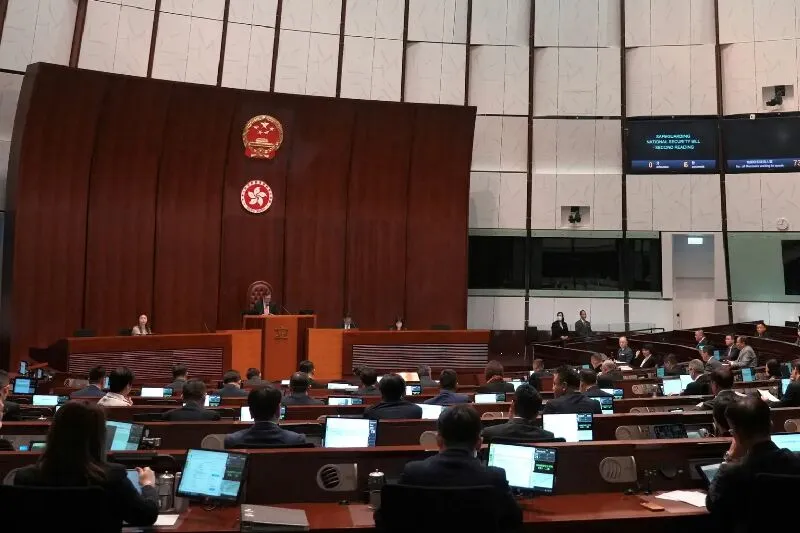Hong Kong’s legislature adopts a new national security law
The rapid passing of Hong Kong’s new national security bill has generated significant controversy and debate. LegCo approved the bill in just two weeks, raising questions about the thoroughness of the legislative process. Critics worry the expedited timeline could undermine civil liberties.
The broad scope of offenses covered by the bill, including treason, sedition, and theft of state secrets, concern those who fear it may be used to suppress dissent. Supporters argue it is necessary for stability, but opponents see it as eroding Hong Kong’s autonomy and freedoms.
The bill’s impact on freedom has sparked intense discussion. Critics argue it severely weakens Hong Kong’s autonomy and civil rights, especially following the previous national security law. There are fears the vague language could target pro-democracy activists and journalists, quashing political opposition and free speech.
The extraterritorial reach also troubles those who see it as intimidating critics of China wherever they reside. Human rights groups and foreign governments have expressed alarm at the shrinking freedoms in the region.
Internationally, the bill’s passage has generated censure. The U.S. in particular has warned of consequences for Hong Kong’s autonomy and global standing. As U.S.-China tensions rise, calls to safeguard fundamental rights and local identity intensify. Other countries and bodies similarly voiced freedom and expression concerns. While diplomatic efforts face Chinese dismissal as interfering, pressure is mounting on Beijing over its obligations.



Comments
Post a Comment